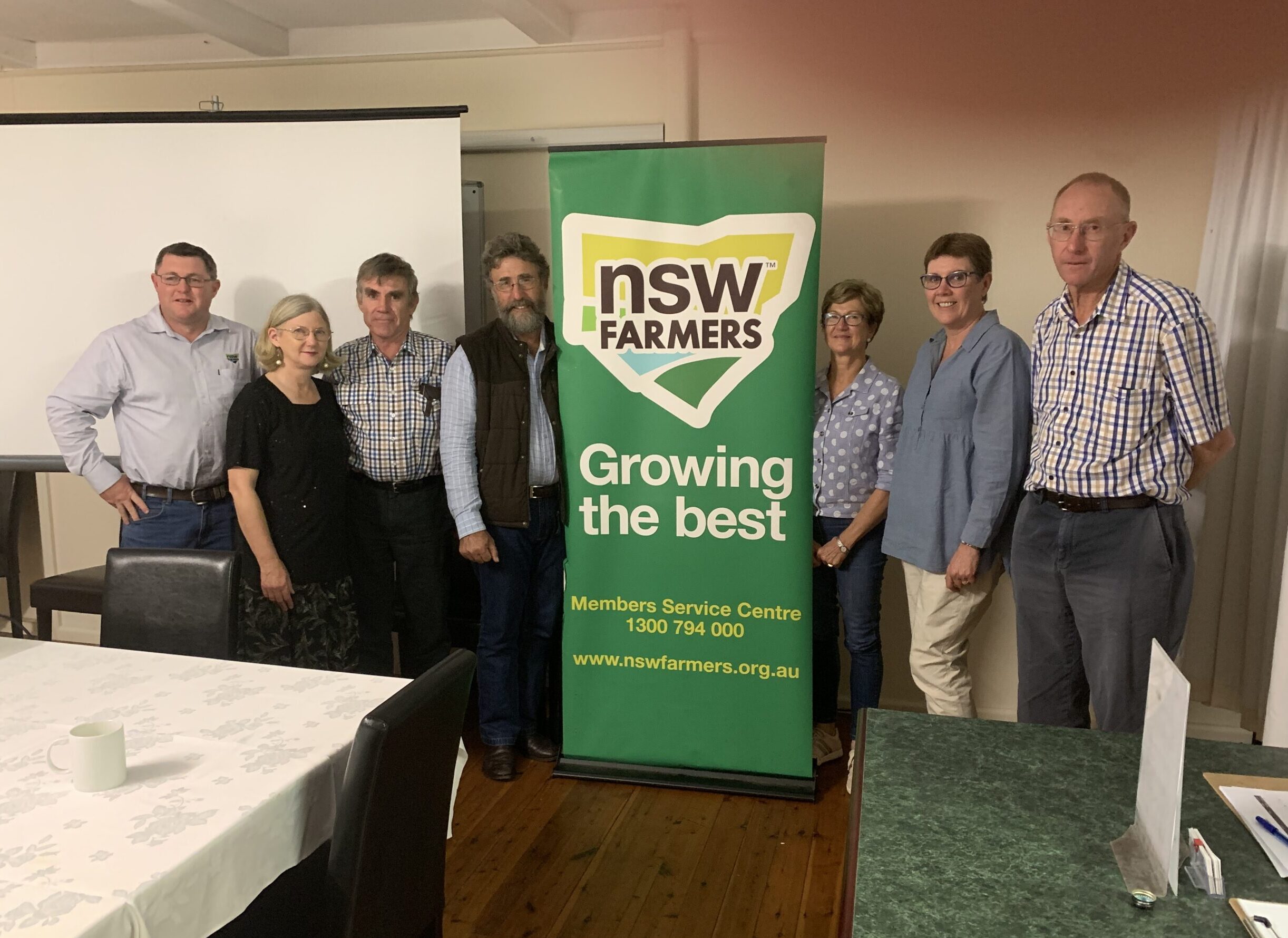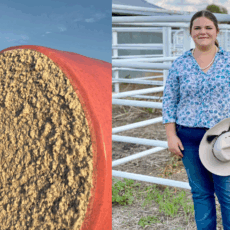NSW Farmers Association president James Jackson has recently been on an annual tour of the region from Boggabilla to Merriwa and up to Tamworth, Bingara and other centres.
Some meetings were washed out by flood, but Mr Jackson came to meet Wee Waa Farmers branch members.
One of the concerns high on the agenda of the Farmers Association is biosecurity, Mr Jackson said.
As one of the epicentres of the Inland Rail this district should be concerned with the movement of grain along the Inland Rail route, using containers which have come into Australia, he warned.
Australia’s biosecurity is underfunded and under resourced, Mr Jackson said.
“We are proposing a $10 levy per container coming into Australia, an onshore biosecurity levy to pay for the recurrent funding of a competent and modern biosecurity surveillance operation”.
“For example, the potential damage from khapra beetle alone is $2.4 billion a year from lost markets. A lot of markets will not take our grain if we have endemic khapra beetle.”
The $10 per container would be like an import levy on the importers.
“The people who benefit by the risk should contribute to the mitigation of the risk,” the association says.
“The short term effects of infestations of khapra beetle on stored grain could be devastating,” said Mr Jackson.
“The big problem is the market risk – a number of markets will not take our grain if this particular bug is endemic.
“The solution is to have an effective on-shore biosecurity system.
“The $10 levy could fund a range of bio security issues.
“For example, serpentine leaf miner insects, a serious threat to agriculture,have recently crawled out of a container at Port Botany, other threats like fire ants and animal biosecurity risks are significant as well.
“There have been 221 detections of importation of exotic disease in the last 12 months,” said Mr Jackson.
“It is in crisis.”
Mr Jackson said NSW Farmers welcomed a crackdown on biosecurity breaches, as the Australian government acted to further bolster protection from growing pest and disease threats.
In a move that reflects the seriousness of biosecurity to industries such as agriculture, the maximum penalty for non-compliance with our biosecurity laws has recently been increased to $1.11 million.
Mr Jackson said stronger deterrents to flouting our strict biosecurity laws are part of the matrix that will help keep threats like khapra beetle and African swine fever at bay.
“We live in a connected world underpinned by travel and trade. COVID-19 may have forced a slowdown in travel, but it’s also provoked an upward trend in parcel movement to Australia,” Mr Jackson said.
“It was disappointing to see a lack of action from a federal level in 2020 around biosecurity. Plans for an Onshore Biosecurity Levy were ditched, then the lack of additional investment to biosecurity in the 2020-2021 Federal Budget.
“We welcome Minister Littleproud’s recent announcement for tougher penalties but we still need a sustainable funding mechanism, such as a container levy, which holds those presenting a risk to account.”
Mr Jackson said the widespread health, social and economic harm caused by the spread of COVID-19 in the human population was a clear demonstration of the damage contagious diseases can do, and should be a reminder of the risk pests and diseases pose to our animal and plant populations.
“A CSIRO report released in 2020 confirmed that we should be worried about future pest and disease incursions if our current biosecurity model remains intact.”
“The report reinforced the unfortunate reality that ‘economic engine’ industries like agriculture will be compromised if our biosecurity model is not transformed for the better. We clearly need change. This recent legislative change on penalties is a step in the right direction, but a multifaceted approach to biosecurity must be a priority moving forward.”
To order photos from this page click here










